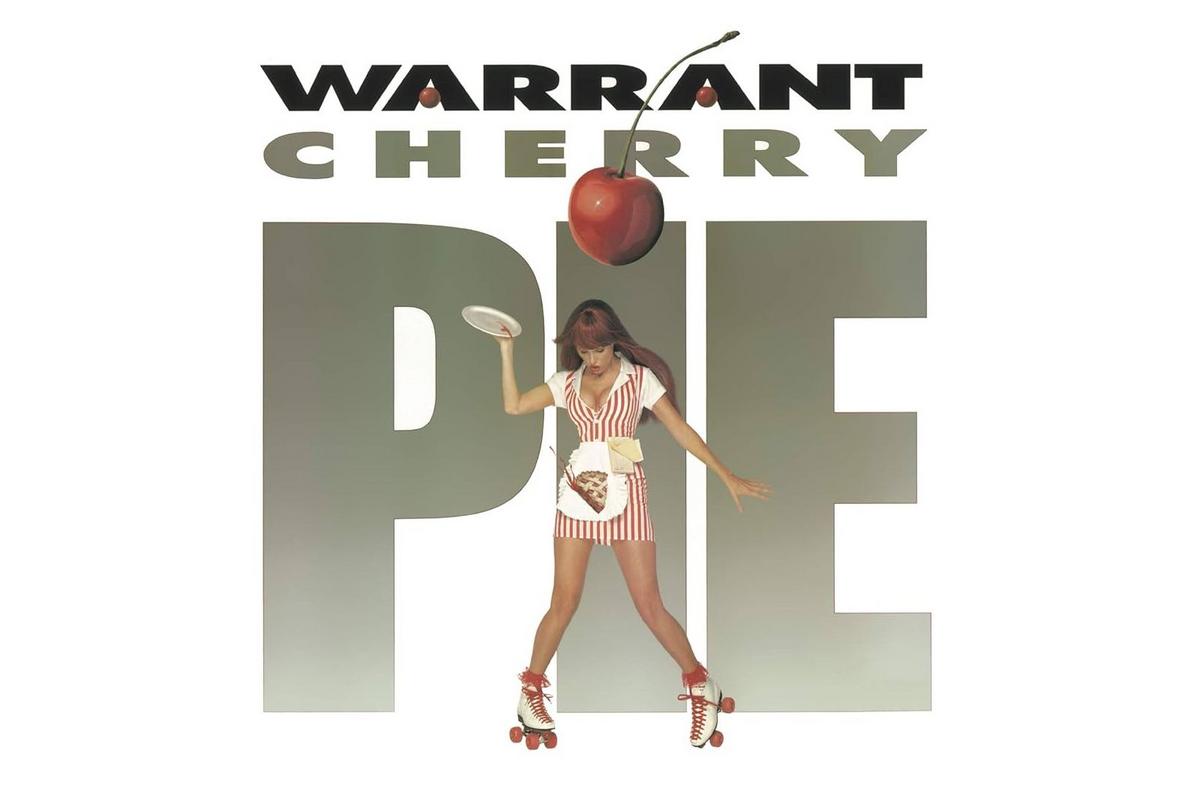Warrant‘s 1989 debut album, Dirty Rotten Filthy Stinking Rich, lived up to its title by raking in gobs of cash for the band’s label with a precision-tooled mix of radio-friendly rockers and ballads. When it came time to record the follow-up, the group wanted to spread its wings a little — but at first, the record company didn’t hear a single.
That feedback came so late in the recording process that the band members actually thought the album was wrapped. Intending to call it Uncle Tom’s Cabin, after a song they’d pegged as the lead single, they’d started scattering for some pre-release time off when singer and chief songwriter Jani Lane was asked to go back to the well.
It might have been a disappointing request, but it probably wasn’t entirely unexpected. As Lane later explained, they’d made a conscious effort not to mindlessly double down on everything they did the first time around — including cutting anything deliberately designed to serve as a sequel to Stinking‘s biggest hit single, the power ballad “Heaven.”
“A lot of people, I think, were expecting us to release an album full of ‘Heavens’ because that song did so well for us,” he told the Rapid City Journal. “So really, that’s what I tried not to do.”
To his credit, when Lane set out to write the hit Columbia was looking for, he didn’t pen a power ballad at all; instead, he handed them an uptempo series of hyper-sexual double entendres called “Cherry Pie.” Proudly dumb and extremely catchy, the song was everything the label wanted.
“When Columbia heard it, they exploded,” Lane told the Chicago Tribune. “They said, ‘That’s it: That’s the song, the album, the video.'”
Watch Warrant Perform ‘Cherry Pie’
The hastily rechristened Cherry Pie LP reached stores on September 11, 1990 — by which time the title track, which was shipped to radio in late August, was already racing up the charts. As label execs predicted in their assessment of the song, the “Cherry Pie” video absolutely didn’t hurt its reception; centered largely on blonde model Bobbie Brown in a series of extremely suggestive poses, it offered immediate proof that Warrant weren’t about to fall prey to the sophomore jinx.
Behind the scenes, the clip also served as a love connection between Lane and Brown, who married the following year. As he recalled, the whole thing came down to a chance encounter.
“I met her in a place in California called Jerry’s Deli. She lived down the street from my house,” Lane told the Kansas City Star. “I was eating lunch and I recognized her as a spokesmodel from Star Search, and I just basically asked her if she’d like to be in the video, and she said sure.”
If a lot of Cherry Pie‘s story seems charmed, it’s also well worth noting that the song and album experienced a backlash almost immediately. Critics were quick to point out that “Cherry Pie” sounded an awful lot like a number of other songs, chief among them “I Love Rock ‘n’ Roll.” They were also appalled by the lunkheaded horndog lyrics, which only reinforced detractors’ arguments that Warrant were just another hair metal band with little to offer beyond lowest common denominator arena rock.
Read More: Was Warrant’s “Cherry Pie” Video as Sexist as It Seemed?
“It’s nothing amazingly new,” Lane shrugged when the Kansas City Star asked about criticism of the song on a musical level. “But as long as people think it’s fun and they rock to it and it puts them in a good mood and puts a smile on their face, I’ve definitely accomplished something.”
When it came to their treatment of women, however, he pushed back a little more forcefully. Although he offered a weak defense of the Cherry Pie album cover, saying “It’s hilarious. A piece of cherry pie falls in a girl’s lap,” his Chicago Tribune interview suggested he’d taken some of that criticism to heart.
“My purpose in life goes beyond sex and money. My purpose is to write, be creative, to take my god-given talent and do something positive with it,” he insisted. “People can call us chauvinist pigs. We expect it. But there are two definitions of chauvinism. One is an unfounded loyalty to one’s own sex. We don’t have that. The other definition is having a fanatical patriotism toward women. And we do. So go ahead and say we’re chauvinists.”
The song and album both peaked inside the Top 10, setting up a string of singles that included the No. 10 ballad “I Saw Red” and Mainstream Rock hits “Uncle Tom’s Cabin” and “Blind Faith.” The band hit the road with FireHouse and Trixter, staying on the road — and on the airwaves — well into the following year. But even as they celebrated what would become their second double-platinum album, they acknowledged that momentum was just as difficult to maintain as it had been to achieve.
How Warrant Learned Fame Isn’t Just One Big Party
“I would have thought that suddenly, your life became this big Hollywood party. It’s just the opposite. You’re forced into responsibility, and suddenly you have a lot of bills and some assets and some pressure. The only reason I’m in love with the idea of success is because it makes you more accessible to more ears,” Lane told the Rapid City Journal. “And that’s my thing. I want to be heard by as many people as possible.”
Rhythm guitarist Erik Turner was even more brutally honest. “We worked so hard to get where we are that we just want to enjoy this. In the music business, you can’t predict anything,” he told the Sioux City Journal. “We could be here 20 years from now or we could be gone in two.”
Unfortunately for the members of Warrant, their commercial relevance expired on the shorter end of Turner’s predicted range. Although they hustled right back into the studio to produce their next LP, by the time they returned with Dog Eat Dog in the fall of 1992, the landscape had changed. Lane later famously recalled seeing a framed poster of the band hanging in their label’s lobby one week, and then returning shortly thereafter to find they’d been replaced with Alice in Chains. Just like that, the party was over.
Of course, nothing happens that suddenly — Dog Eat Dog peaked inside the Top 40 and sold half a million copies — but the reality is that comparatively few listeners heard the darker, more experimental side of Warrant that surfaced on that third album, and as grunge ascended, the band was frozen in the public’s memory as lightweight power balladeers and leering goofballs. Lane briefly quit the band, then returned; meanwhile, his marriage to Brown fell apart in 1993. While touring to stay afloat, they sued to get off Columbia, convinced the label had lost all interest in promoting their work.
While Warrant stayed active throughout the ’90s, it was also a period of high instability, with more than enough comings and goings to fill a post of their own. Lane left again in 2004 and returned for a reunion in 2008, but by that time, his issues with substance abuse were well known and often interfered with his ability to consistently work; shortly thereafter, they moved on without him for good. Decades removed from the success of “Cherry Pie,” he’d developed a complicated relationship with the song, once bitterly saying “I could shoot myself in the fucking head” for writing it.
In all fairness, it’s well worth pointing out that Lane’s views on “Cherry Pie” weren’t always negative, and he often insisted he was proud to have been involved in anything that found such a large audience. But there’s no getting around how deeply it dogged the group, as well as Lane’s efforts to establish himself as a solo artist, long after it faded from the airwaves. His 2011 death from alcohol poisoning put a final tragic coda on a career that often seemed tantalizingly close to turning out very differently.
Kiss frontman Paul Stanley, himself no stranger to being criticized for simply constructed rock songs whose lyrics were often accused of chauvinism or misogyny, might have offered the best, most succinctly phrased perspective on Lane’s post-Cherry Pie career. Speaking with SPIN after Lane’s death, Stanley mused, “Jani was a terrific writer and singer who seemed to see his successes as a cross to bear. He fought his enemy within, and he lost.”
The Best Hair Metal Album of Every Year From 1981-1991
Gallery Credit: Bryan Rolli



